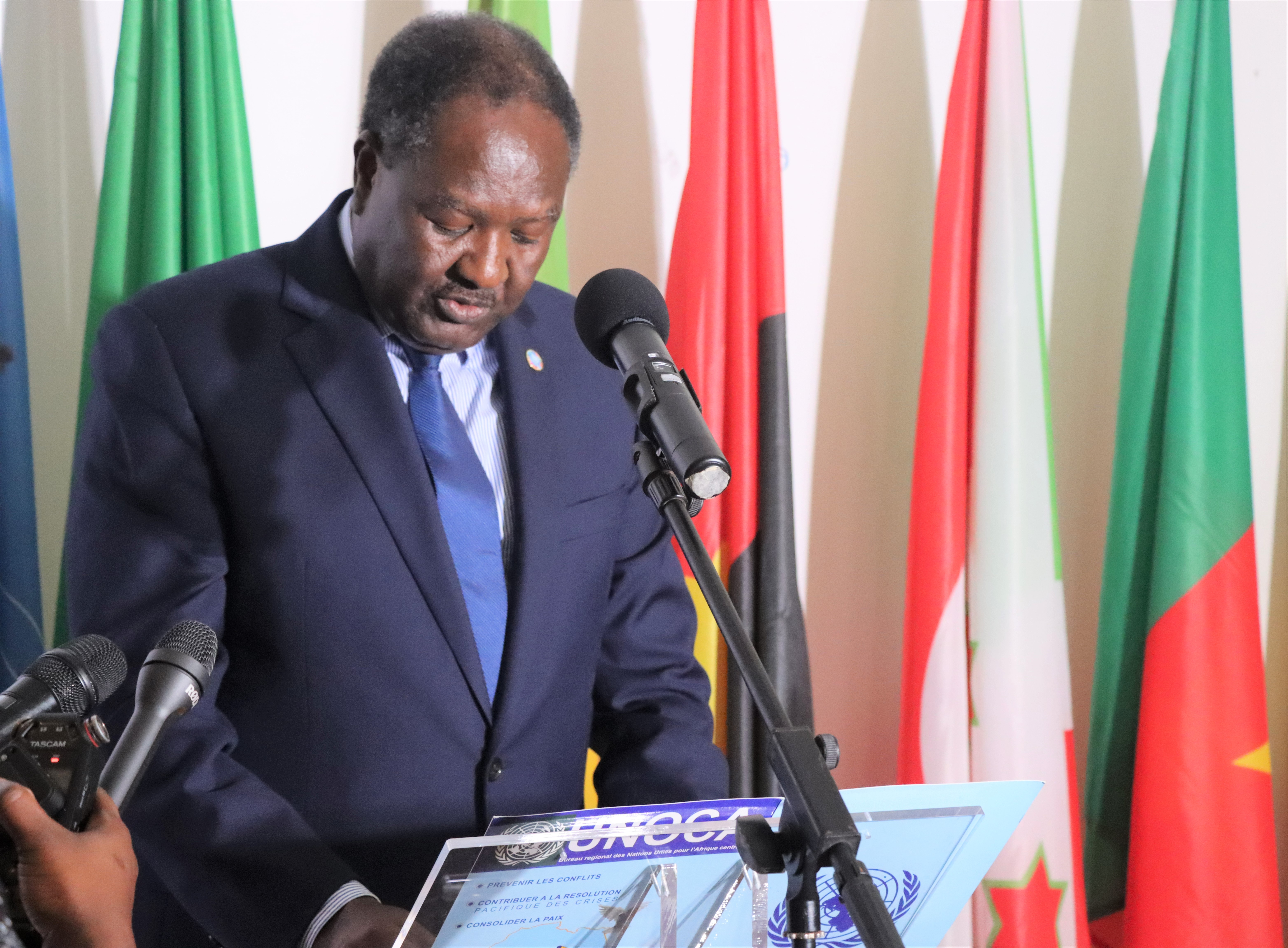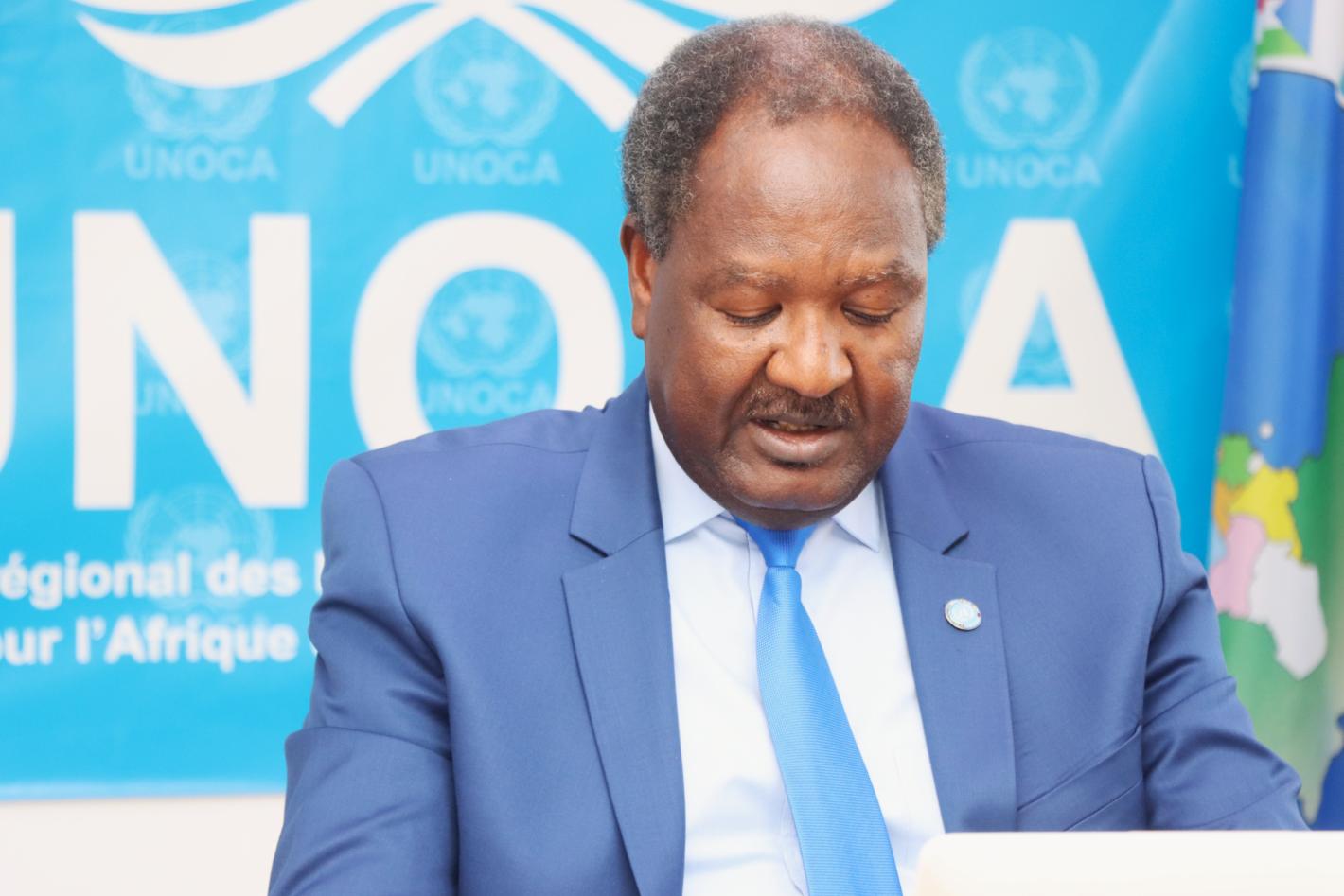The 55th meeting of the United Nations Standing Advisory Committee on Security Questions in Central Africa (UNSAC) ended in São Tomé on 19 May, with the ministerial session. The official opening ceremony was chaired by the Santomean Prime Minister, Mr. Patrice Emery Trovoada. It took place in the presence of heads of delegations from the 11 Members States of UNSAC, representatives of sub-regional, regional and international organizations, as well as the diplomatic corps and senior UN officials, including the Special Representative and Head of the United Nations Multidimensional Integrated Stabilization Mission in the Central African Republic (MINUSCA), Ms. Valentine Rugwabiza, and her colleague Abdou Abarry, Head of UNOCA. In his remarks, the latter recalled the need to address collectively the challenges that hinder the stability and progress of the sub-region. He cited a few of these, referring to "political crises, armed conflicts, terrorism, particularly in the Lake Chad Basin, challenges which also continue to fuel internal or cross-border tensions, transnational organized crime, maritime insecurity, human rights violations, social tensions, inter-community conflicts, inequalities - all issues amplified by the effects of climate change.”

On this last point, Mr. Abarry encouraged UNSAC Member States to strengthen their cooperation and solidarity to mitigate the impacts of climate change and prevent the potential conflicts that this phenomenon can generate. He believes that this commitment should translate into national and regional policies aimed at reducing greenhouse gas emissions, promoting renewable energies, protecting the environment and adapting socio-economic systems to climatic realities. This issue was addressed by all speakers, especially since it was the main theme of the São Tomé meeting.
Issue of refugees, "fundamentally a question of peace and security."
Several other key topics were equally the focus of exchanges, including that of refugees, considered by Mr. Jean-Claude Gakosso, Congolese Minister of Foreign Affairs and outgoing President of the UNSAC Bureau, as being "fundamentally a question of peace and security." In his speech at the opening of the session, he recalled that during his mandate at the head of the Committee, the Republic of Congo organized a field visit (from 24 to 28 April 2023), which made it possible to better understand the realities in certain sites hosting more than 8,000 asylum seekers, including mainly nationals from the Democratic Republic of Congo (DRC) fleeing ethnic conflicts in their country. UNSAC Member States reiterated the urgent need to put in place sub-regional mechanisms for efficient support of displaced populations. To this end, the ECCAS’ initiative to develop, with the technical support of the United Nations, a common asylum policy to ensure better protection for people in distress was welcomed by the Committee - whose work was concluded by the adoption of the " São Tomé Declaration on the issue of refugees and displaced persons."
Furthermore, the political and security situation in certain countries of the sub-region was equally the focus of attention, including in a closed session. This is the case for the Central African Republic (CAR), the DRC and Chad. Mr. Mangaral Bante, ECCAS Commissioner for Political Affairs, Peace and Security, contributed to the discussions on these files and many others, sharing with Member States the efforts that the Commission is making to promote peace and stability in the sub-region. He seized this opportunity to welcome the collaboration with UNOCA and plead for it to be further strengthened. One of the projects on which the two institutions are expected to work together shortly is related to support for Cameroon, country that has been mandated by the Committee to monitor actions that should lead to the political endorsement of the regional Strategy and action plan to address and counter hate speech in Central Africa. The draft Strategy and action plan was adopted in June 2022 in Kinshasa, DRC.
The 56th UNSAC ministerial meeting, to be held in Kigali, Rwanda, in November 2023, will provide an opportunity to take stock of this issue, among others. São Tomé and Príncipe will chair the Committee until that date. Rwanda, Angola and CAR are also part of the Bureau, as First Vice-President, Second Vice-President and Rapporteur, respectively. All the other Member States (Burundi, Cameroon, Chad, Congo, DRC, Equatorial Guinea and Gabon) have committed to provide the necessary support for the successful completion of their mandate. It is important to underline that at the sidelines of the 55th UNSAC Meeting, all the heads of delegations of those countries as well as representatives of subregional, regional and international organizations were received in audience on 19 May 2023 by the President of Sao Tome and Principe, Carlos Vila Nova.





